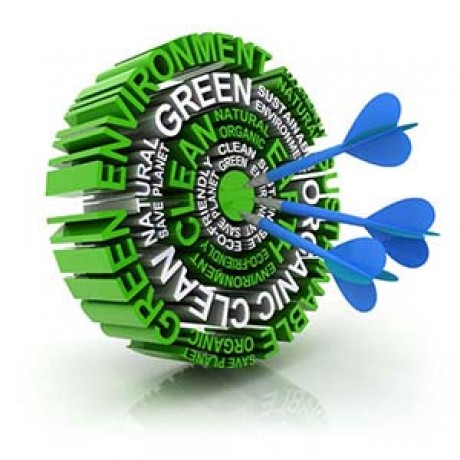Take control of your indoor air quality
Some surprisingly simple products can work in your favor
By Hannah McKenzie
Q: My sister maintains a healthy lifestyle by eating right and staying active. She also is impeccably clean by using the latest and greatest cleaning products that often give me a headache. How can I convince her that using less smelly cleaning solutions will be better for our health?
A: You are right to be suspicious of the healthfulness of your sister's cleaning products. Wisely selecting cleaning products is one of the easiest ways to improve your home's indoor air quality (IAQ). IAQ has become increasingly important as construction techniques and our lifestyles have changed in the last few decades.
Homes are built more airtight to keep the heating and air conditioning inside. That is great for feeling comfortable, but airtight houses keep indoor air pollutants inside as well.
Our lifestyles have changed since televisions, computers and air conditioning lure us to spend more time indoors. Once upon a time, the front porch and living room were the same temperature on a summer day. Nowadays we are also bringing more products into our homes that emit volatile organic compounds (VOCs).
Don't let the word "organic" fool you. VOCs are emitted as gases from certain solids or liquids. They include a variety of chemicals, some of which may have short- and long-term adverse health effects especially for children, asthmatics and folks with respiratory illnesses. VOCs are around us all of the time, especially indoors. Sometimes, indoor VOC levels can be up to 10 times greater than the outdoor air.
The U.S. Environmental Protection Agency explains that VOCs are emitted by a wide array of products numbering in the thousands. Examples include: paints and lacquers, paint strippers, cleaning supplies, air fresheners, pesticides, building materials and furnishings, office equipment such as copiers and printers, graphics and craft materials including glues and adhesives, and permanent markers. You probably have seen the term "no-VOC" on paint cans at your local hardware store.
There are two reasons for your sister to alter her cleaning regimen:
1. Choosing more healthful cleaning products will improve the IAQ and make it a healthier living environment.
If she wants to stick with smelly cleaners, read the fine print on the package for appropriate use. Some products need to be diluted or used in ventilated areas. Perhaps using less of the product will produce the same result; and don't be fooled by the word "green."
Do a little homework. The Environmental Working Group is a great resource for getting the inside scoop on the healthfulness of products. They maintain a database of more than 2,000 cleaning products that helps consumers compare and make wise choices.
My favorite "go to" cleaning products are vinegar and baking soda: neither is a skin irritant, and I don't have to worry as much if my toddler breaks into the cleaning cabinet. A quick Google search yields websites with hundreds of cleaning tips.
2. Save money!
Often the safest cleaning products are also the cheapest. When I was living on a very tight budget in college, I didn't realize I was being healthy by mixing my own window cleaner out of vinegar and water. I was only focused on it being cheap. A gallon jug of vinegar could season collard greens, clean windows and brighten my white clothes. Easy peasy!
Air freshener is also expensive. I stopped using it and instead aired out the bathroom with a fan or by opening a window. Now I know I was making wise decisions for my health and pocketbook. Encourage your sister to do the same.
Cleaning up indoor air doesn't have to be a stressful endeavor. Start slowly by eliminating the products you can live without and choose products wisely by doing a little homework.
Eventually, your cleaning cabinet will not hold products that use the words "danger," "warning," "caution," "toxic," "corrosive," "flammable" or "poison." Imagine that!
For more information, check out the Environmental Working Group at www.ewg.org
-
Share this story:
{ampz:Custom share for module}